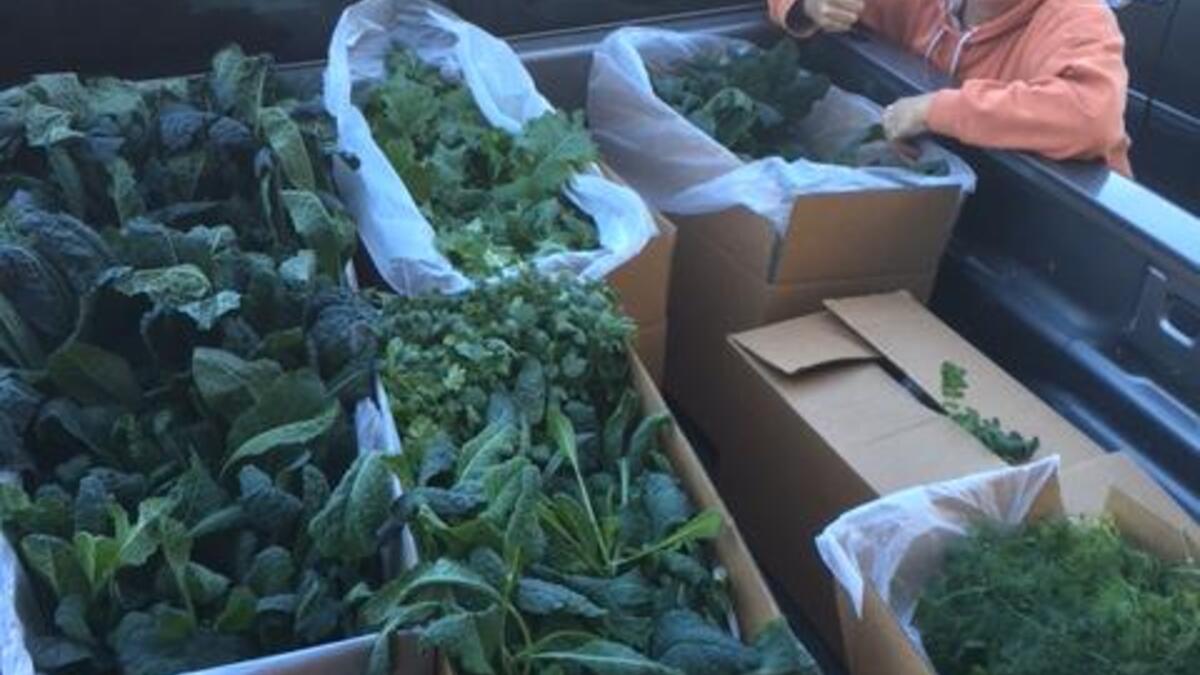ASU doctoral grad transforms communities with food knowledge

Graduate doctoral student Paris Masek is president of Green on Purpose, a food hub service delivering exclusively locally grown agricultural products to those who live and work in the greater Phoenix area.
Editor’s note: This is part of a series of profiles for spring 2019 commencement.
Paris Masek is graduating from Arizona State University this spring with a PhD in English literature.
That seems straightforward; however, like most of what Masek does, it’s not. That this Phoenix resident is earning his doctorate represents a circular, holistic journey, a repurposing of experiences and knowledge into something new — maybe even something transformational.
Masek is a specialist in indigenous American literature; his interdisciplinary research and work focuses on the importance of place. According to Masek, the materiality of food and animal inhabitants of the Southwest region are central to indigenous literature and to the food systems that function here. The written stories, oral narratives and cultural ceremonies speak to all those interactive relationships; Masek uses the term “transmergent.”
“Knowledge is power,” he said, “and food is medicine.”
Masek practices what he preaches. He is president of Green on Purpose Inc., a food hub service delivering exclusively locally grown agricultural products to those who live and work in the greater Phoenix area. He also heads the Pueblo Viejo Fields Project that infuses the power of food knowledge into the local community. The project was the first recipient of the city of Phoenix Brownfields to Healthfields Grant program in 2016 in conjunction with the U.S. Environmental Protection Agency.
For his work, Masek was also a finalist for this year’s Graduate College Knowledge Mobilization Awards, which focus on translating research into real-life impact.
We sat down with Masek to learn more about his theories on interconnectedness.
Question: What was your “aha” moment, when you realized you wanted to study in your field?
Answer: In my first foray into academia, I studied fish biology back in the 1970s. But my favorite subjects were literature and history. After being in the workplace for 30-plus years, I was laid off from my job in 2009. I decided to apply to graduate school in English literature after earning my BA in literature from ASU.
The last class I took as an undergraduate was Native American literature with Regents’ Professor Simon J. Ortiz, who really liked my writing. Everything at that point just seemed to fall into place at the right time: the past meeting the present and constantly moving forward into the future.
Q: What’s something you learned while at ASU — in the classroom or otherwise — that surprised you, that changed your perspective?
A: Never accept definitions or understandings as absolute facts. Always be open to other theories, opinions, perspectives … take your time before you express your own comprehension of those facts, and even then, keep searching for a better answer.
Q: Why did you choose ASU?
A: It was in my backyard, so to speak. Growing up in southern California I had always wanted to go to ASU, it just seemed so far away for me back then.
Q: Which professor taught you the most important lesson while at ASU?
A: Simon Ortiz and Ron Broglio. See answer to “what I learned while at ASU.”
Q: What’s the best piece of advice you’d give to those still in school?
A: Never quit, never quit — no matter how upside down a situation seems to be.
Q: What was your favorite spot on campus, whether for studying, meeting friends or just thinking about life?
A: Labriola Center in Hayden Library.
Q: What are your plans after graduation?
A: Continue my current course of study and work with indigenous culture and literature, animal studies, biology and food. They are all interconnected when you look close enough.
Q: If someone gave you $40 million to solve one problem on our planet, what would you tackle?
A: I am the legal guardian for a person with developmental disabilities. I would set up a trust fund for (this person) and other individuals with similar cognitive and physical disabilities. The fund would cover the expenses of life that they could not afford under one stipulation: that they would be trained and put into jobs so they could earn income and meet others with similar challenges. This gives those individuals a sense of self-importance, gives them a sense of purpose, and makes them not 100% dependent on other entities for their support. Typically it takes $2.3 million dollars in support per an individual with these obstacles throughout their lifetime to survive. I would set up as many accounts as that would purchase.
More Science and technology

ASU technical innovation enables more reliable and less expensive electricity
Growing demand for electricity is pushing the energy sector to innovate faster and deploy more resources to keep the lights on…

What do a spacecraft, a skeleton and an asteroid have in common? This ASU professor
NASA’s Lucy spacecraft will probe an asteroid as it flys by it on Sunday — one with a connection to the mission name.The asteroid…

Hack like you 'meme' it
What do pepperoni pizza, cat memes and an online dojo have in common?It turns out, these are all essential elements of a great…

